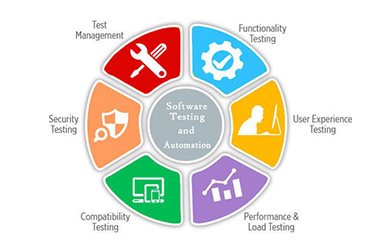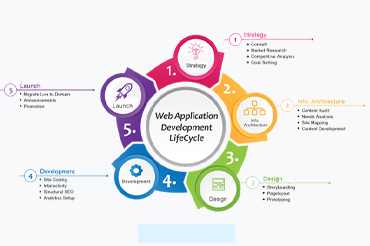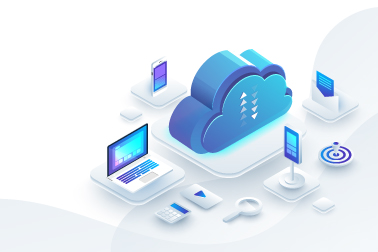
Introduction:
Cloud computing has transformed the way businesses operate by enabling them to scale rapidly, reduce costs, and gain access to a vast array of effective services and tools. Amazon Web Services (AWS) and Microsoft Azure are two of the most notable competitors in this market. These cloud computing behemoths provide a variety of services suited to the diverse requirements of organizations and developers worldwide. To make an informed decision between AWS and Azure, it is essential to comprehend their distinctions. In this exhaustive guide, we'll examine and contrast AWS and Microsoft Azure, emphasizing their differences in great detail to help you choose the cloud platform that best meets your needs.
1. Company History:
AWS: In 2006, Amazon Web Services, also known as AWS, launched the cloud computing revolution. Utilizing Amazon's extensive infrastructure, AWS quickly established itself as the market leader. Its comprehensive range of services and dedication to innovation have solidified its position as a market leader.
Microsoft Azure: Microsoft's venture into cloud computing began in 2010 with the introduction of Azure. Azure quickly emerged as a formidable competitor to AWS, capitalizing on Microsoft's vast enterprise client base and software expertise. Azure's tight integration with Microsoft's products has attracted companies with a strong presence in the Microsoft ecosystem.
2. Service Provisions:
AWS: Amazon Web Services provides a wide range of cloud services, including computing, storage, databases, machine learning, analytics, and Internet of Things (IoT) services. Elastic Compute Cloud (EC2) for scalable virtual machines, Simple Storage Service (S3) for object storage, and Lambda for serverless computation are notable AWS services.
Microsoft Azure: Azure's exhaustive service offerings are comparable to those of AWS, comprising similar categories such as computing, storage, databases, AI and machine learning, analytics, and serverless computing. Azure Virtual Machines, Azure Blob Storage for scalable object storage, and Azure Functions for serverless applications are popular Azure services.
3. Share of the Market:
AWS: AWS has historically held the greatest market share in the cloud computing industry. Its early market penetration and commitment to innovation have made it the cloud provider of choice for many entrepreneurs and businesses.
Microsoft Azure: Azure has been consistently acquiring market share and is currently in second place. Its competitive advantage lies in its hybrid cloud capabilities, which enable seamless integration with on-premises resources and attract businesses with existing Microsoft technology investments
3. Share of the Market:
AWS: AWS has historically held the greatest market share in the cloud computing industry. Its early market penetration and commitment to innovation have made it the cloud provider of choice for many entrepreneurs and businesses.
Microsoft Azure: Azure has been consistently acquiring market share and is currently in second place. Its competitive advantage lies in its hybrid cloud capabilities, which enable seamless integration with on-premises resources and attract businesses with existing Microsoft technology investments
4. Price Models:
AWS: AWS uses a flexible pay-as-you-go pricing model in which clients are charged based on their actual consumption. Additionally, they provide a generous complimentary tier, allowing newcomers to test their services at no cost.
Microsoft Azure: Azure follows a similar pay-as-you-go model, with a complimentary tier for initial utilization. The hybrid cloud capabilities of Azure, which facilitate the integration of on-premises resources and a seamless transition to the cloud, are a major selling point for enterprises.
5. Global Reach:
AWS: Amazon Web Services has an extensive global network of data centers and regions, allowing its services to be accessible from nearly every location on the planet. This extensive global footprint provides businesses with international operations with low-latency access and redundancy.
Microsoft Azure: Azure also maintains an extensive network of data centers across regions, with a significant presence in North America, Europe, Asia, and other important markets. This global reach enables Azure to effectively serve a diverse spectrum of customers.
6. Usability:
AWS: AWS services are renowned for their adaptability and scalability, but novices may encounter a harsher learning curve. To aid users in their cloud voyage, AWS provides extensive documentation, a variety of tools, and a robust support ecosystem.
Microsoft Azure: Organizations acclimated to Windows-based systems frequently prefer Azure. It offers an intuitive interface and seamless integration with Microsoft products, thereby reducing the learning curve for businesses that rely extensively on Microsoft technology.
7. Compliance and Security:
Both AWS and Azure take security and compliance seriously, providing a variety of tools and certifications to ensure data protection and compliance with industry standards. Your selection could be influenced by industry- or region-specific regulatory requirements.
8. Community and Assistance:
AWS: AWS has fostered a large and active user community, with an abundance of third-party tools and resources. AWS also offers a range of support programs, ensuring that consumers can access assistance at various levels as needed.
Microsoft Azure: Azure benefits from Microsoft's large enterprise client base and is creating a community of users and developers. Azure offers extensive documentation and a variety of support options to meet the diverse requirements of its customers.
Conclusion:
In the battle between AWS and Microsoft Azure, there is no one-size-fits-all solution. Your decision should be based on your unique needs, existing infrastructure, and level of expertise. Azure is a compelling option for organizations that are thoroughly embedded in the Microsoft ecosystem due to its strong integration with Microsoft products. AWS is frequently the favored option for startups and tech-focused businesses. Both cloud service providers offer comprehensive and dependable services, ensuring that businesses of all sizes can leverage the cloud's power to innovate, scale, and succeed in the digital age. When deciding between AWS and Azure, thoroughly consider your organization's unique requirements and long-term strategic objectives to make the best decision for its cloud voyage.

























